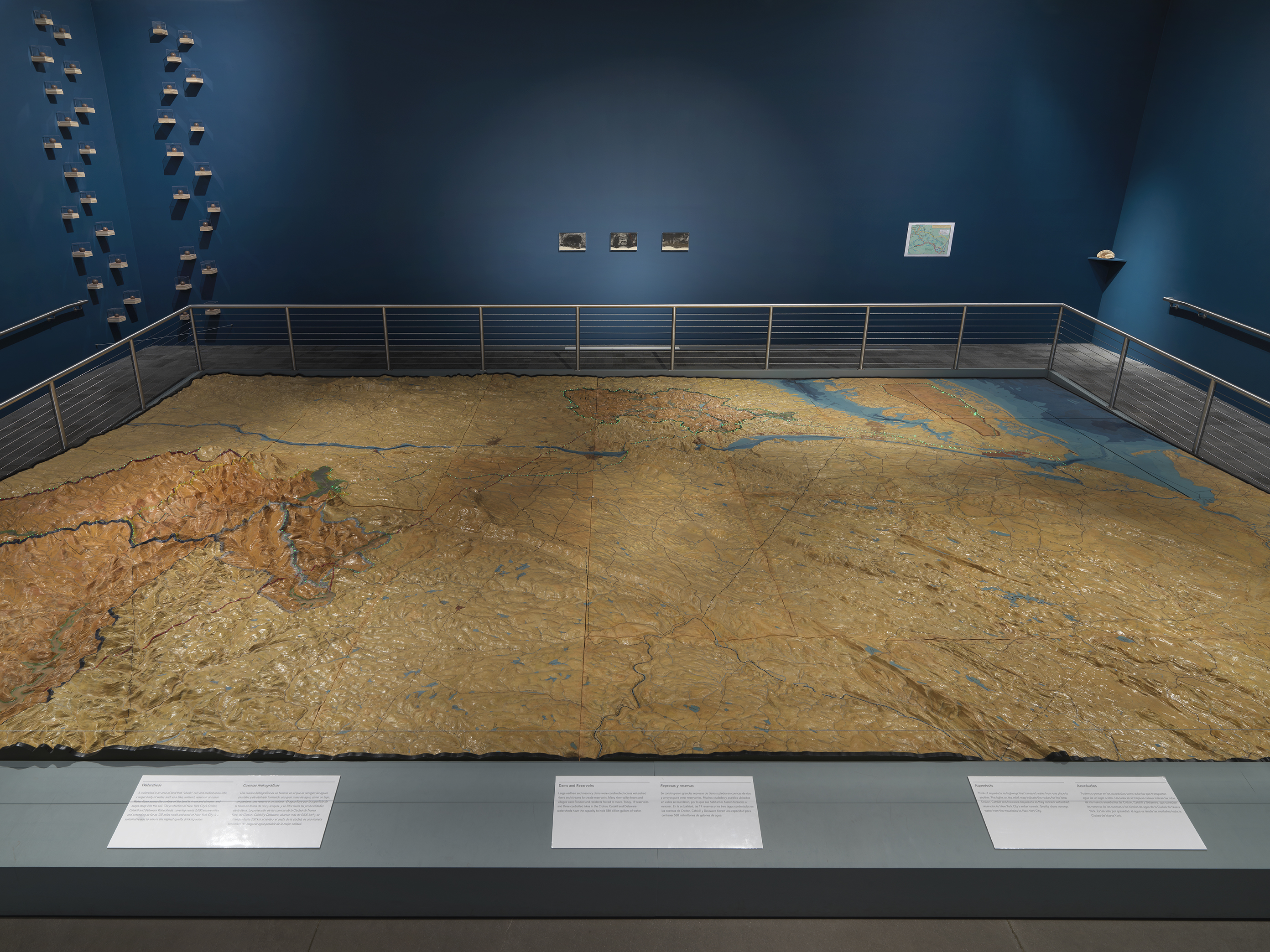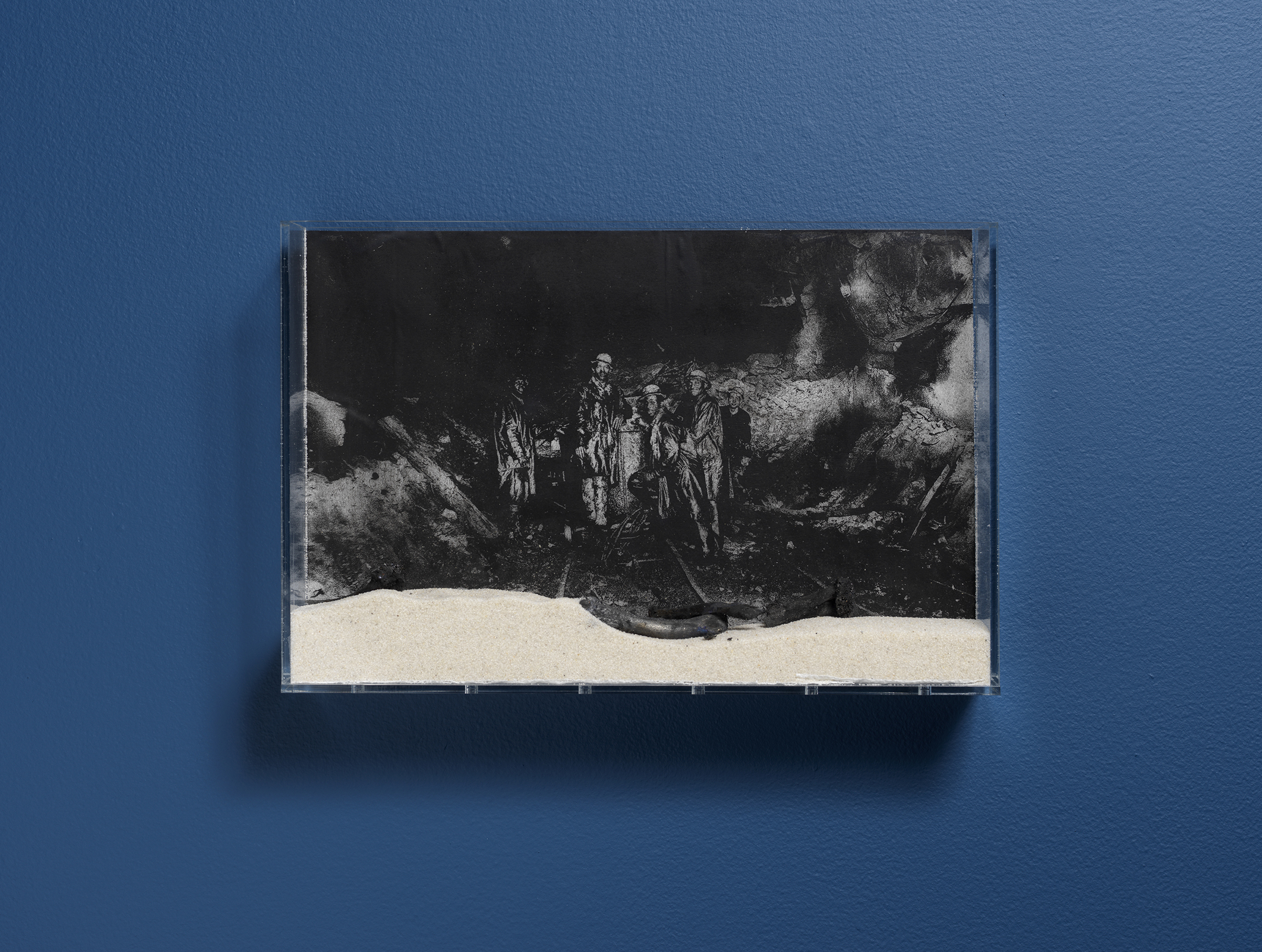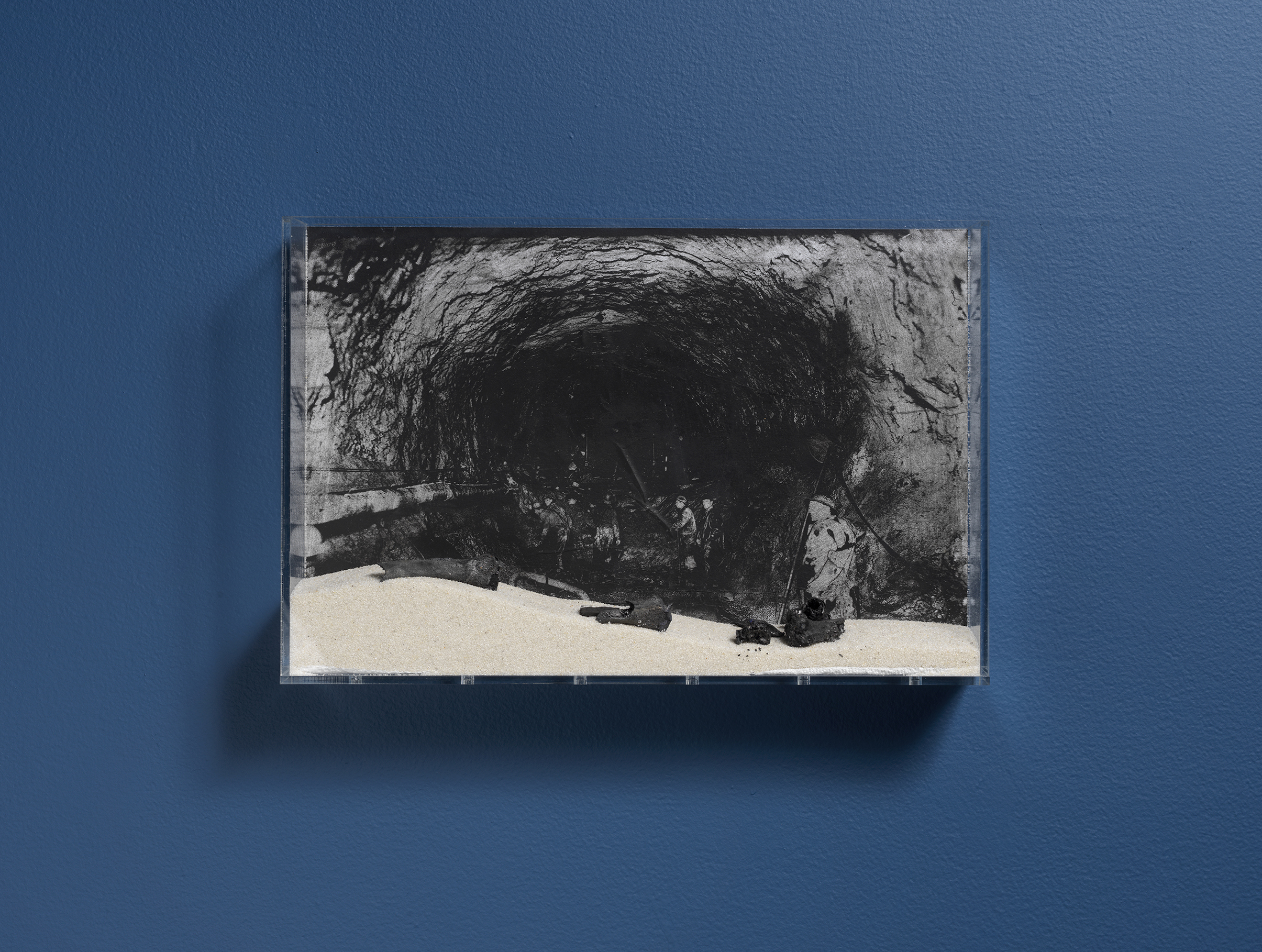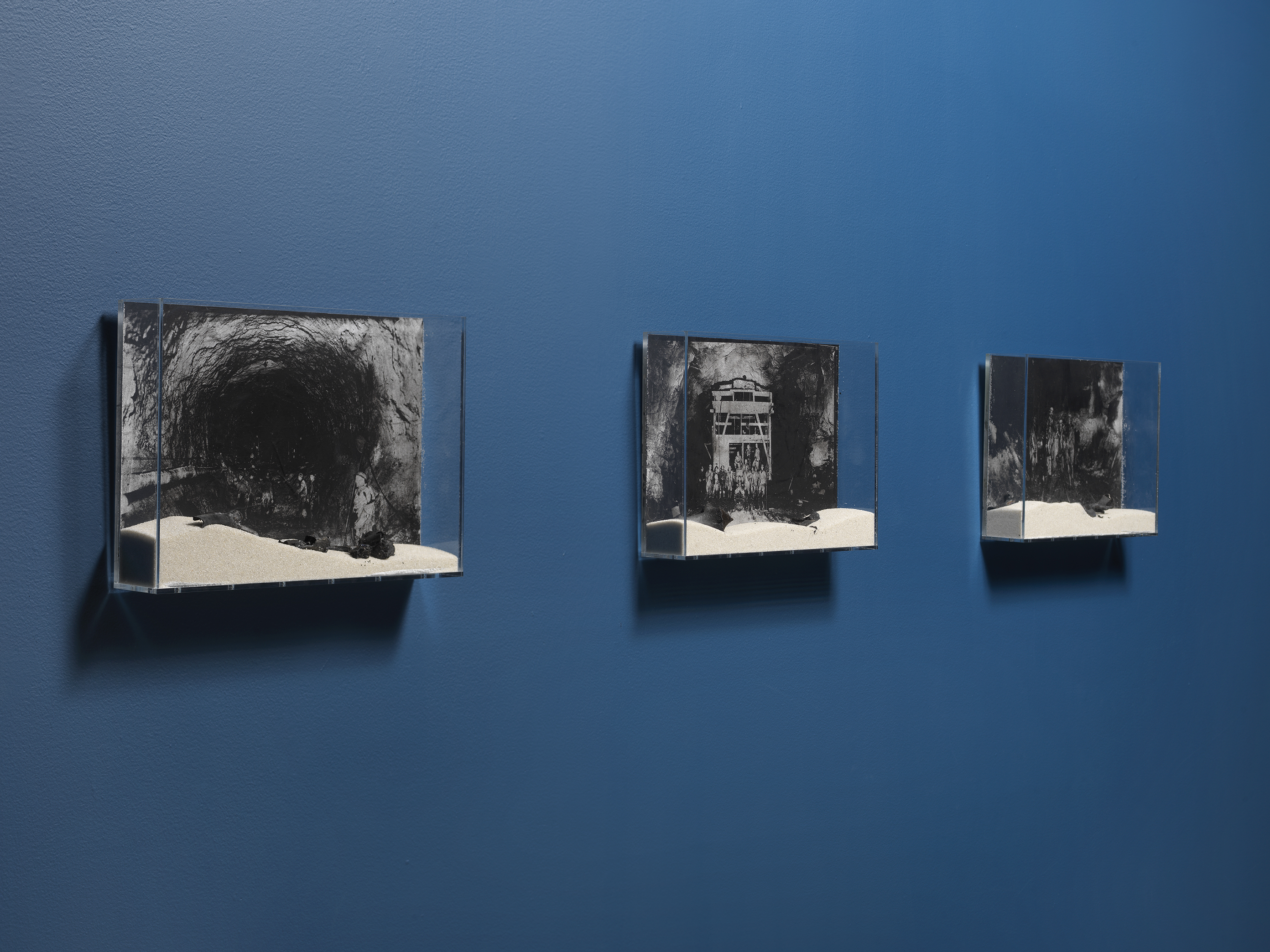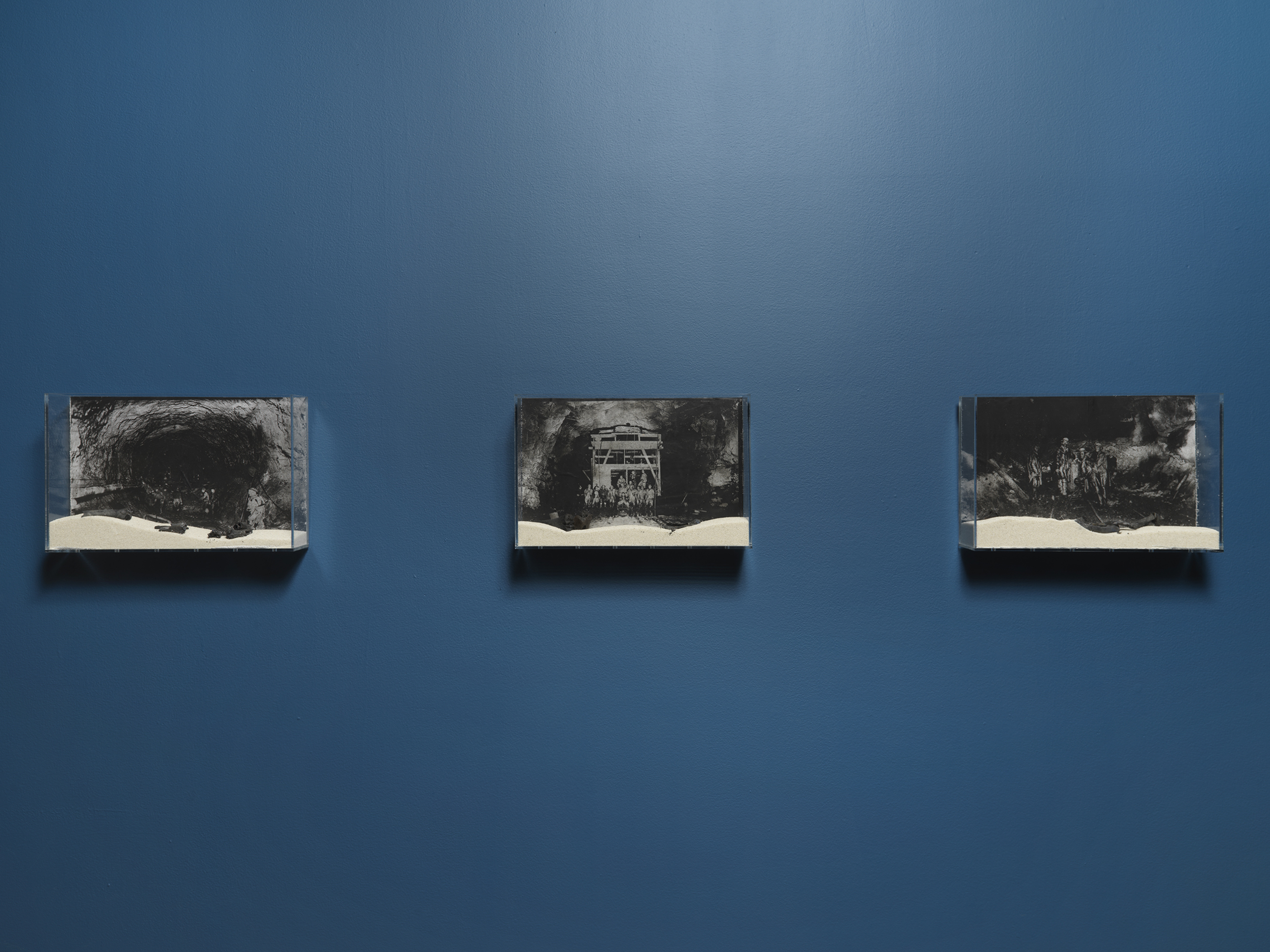Wet Networks
Queens Museum
Oct 30, 2020 - August 14, 2022
Landscape (Neversink Dam diversion tunnel)
Landscape (Kensico-Hillview Tunnel mucking crew)
Landscape (Rondout-West Branch Tunnel)
Credit: Erwin A. Karl, Site Manager and Technical Director at CycleX for donating deer bones
TJ Shin's Landscape series are functional water-filtering dioramas with lithographic backdrops pulled from the New York City Department of Environmental Protection Protection archives. The activated carbon filter and the lithographic prints are produced from charring animal bones found in CampX. Looking at the history of the New York City Supply System and its labor conditions, Shin explores how the act of filtration or the process of purification is entrenched in the grammar of extractivism and expropriation of geological commons, which in turn unearths people into the nonhuman, materials into property, personhood into value, and properties into possession.
Wet Networks is installed alongside the Queens Museum’s long-term exhibition of The Relief Map of New York City’s Water Supply System, and is presented in partnership with Rhizome and CycleX. Wet Networks features artifacts and commissioned projects from Geek Camp 2021: Neversink Never Ever. Taking place in July 2021, this was the first of artist Shu Lea Cheang’s annual “Geek Camp” convenings, at CycleX, an experimental farm and cultural center located in what is today known as the town of Andes, New York. Invited curator, Celine Wong Katzman, chose artists whose practices resonated with the context of the watershed to take part in the camp at the site located just a few miles uphill from where the East Branch of the Delaware River feeds the Pepacton reservoir. Tecumseh Ceaser, Nabil Hassein, Melanie Hoff, Christopher Lin, Jan Mun, and TJ Shin considered Cheang’s prompts to walk the trails, consider the ebbs and flows of the reservoir, and engage waves as carriers to recall buried, bittersweet sentiments of displacement and relocation. They were joined by Erwin A. Karl, mycologist and Evan T. Pritchard, Founder of the Center for Algonquin Culture. Together their reflections and offerings illuminate the relationships between new technologies and traditional ways of knowing, the challenges of collective care, and how land and water shape and are shaped by one another and us.
Zine for Wet Networks with essay Muck, Mattering & Bone
Images courtesy of Rhizome. Photo by Dario Lasagni.
![]()
![]()
![]()
![]()
![]()
![]()
